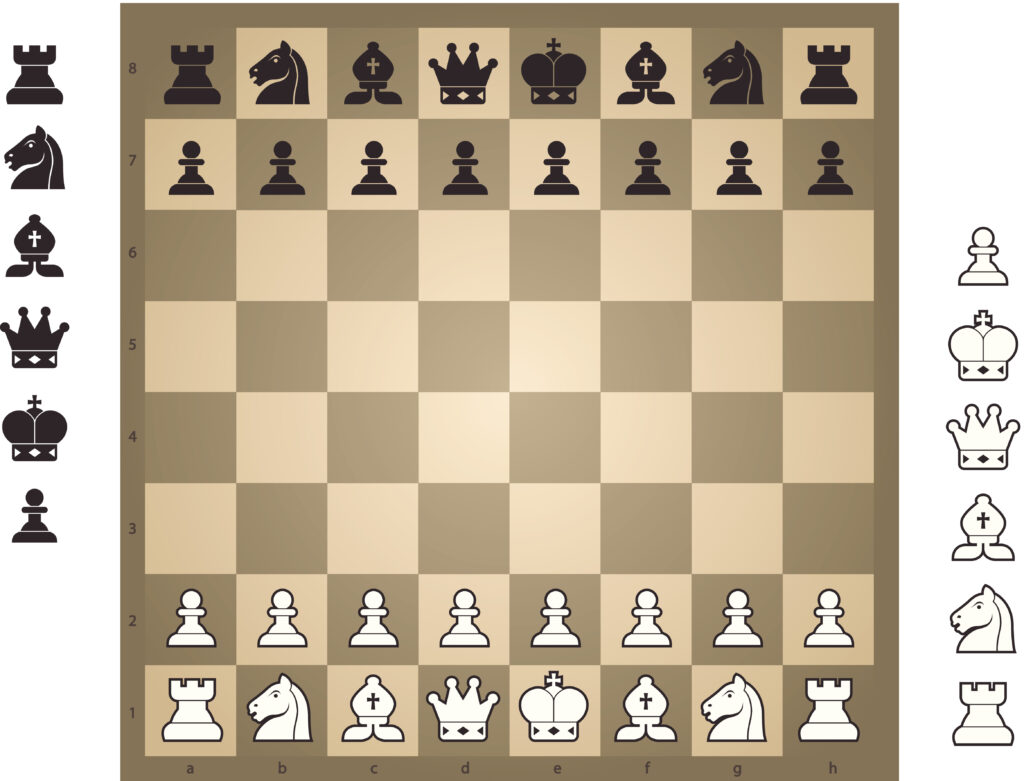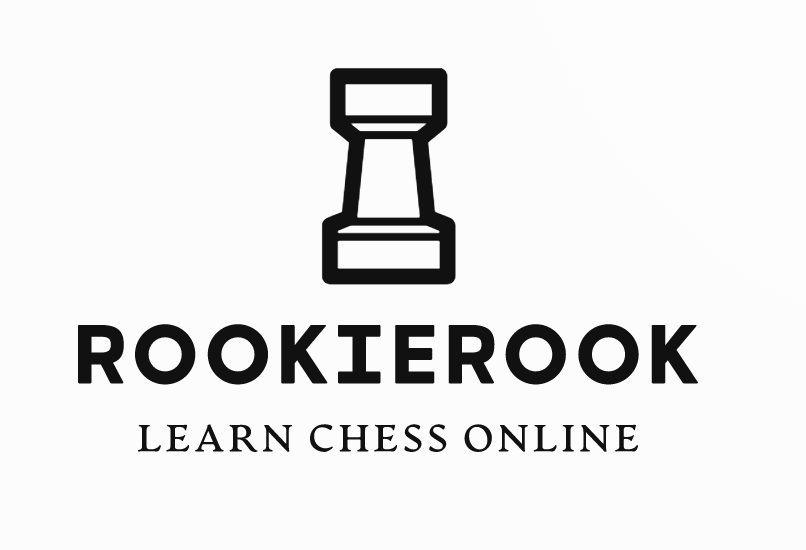The game of chess has been around for about 1500 years. This is something that the community of RookieRook is very happy about and we believe that we might get 1500 more years of it.
Where it all began
Since it was such a long time ago when the magnificent game was invented, the origin of said game is not 100% certain.
There’s theories about chess originating in India back in the 7th century. Where they believe that the game was spread over to Persia. With the Muslim conquests over Europe, the game also managed to get quite the spread in other parts of the world.
The Chess we know today has it’s first version of itself presented as “chaturanga”.
The exact rules of chaturanga is not clear, but we do know the starting setup:

Here’s the names of the different pieces that we know of today:
Raja -> King
Mantri / Senapati -> Queen
Ratha -> Rook
Gaja -> Bishop
Ashiva -> Knight
Padàti / Bhata -> Pawn
During the current 1500 year period of having chess in our lives, there’s been a number of times that the game has evolved as more people started playing it
- 550 AD: Northwestern India
- 600AD: First clear reference to chess, in a Persian manuscript describes chess coming to Persia (Iran) from India.
- ~700AD: Date of first undoubted chess pieces.
- 800AD: Moors bring chess to Spain and Sicily.
- 900AD: Early Muslim chess masters, as-Suli and al-Lajlaj write works on the technique of chess.
- 1000AD: Chess widespread in Europe, including Russia.
- 1300AD: First European comments on chess in sermons and stories.
- 1475–1500AD: Birth of the modern game: especially, new moves for queen and bishop.
- 1495: First printed chess book.
- 1497: First printed chess book to survive to the present day.
- 1600: First professional player-writers.
- 1780s: First master games to be recorded as they were played.
- 1836: First chess magazine.
- 1849: First US chess tournament.
- 1851: First international chess tournament.
- 1866: First match to be timed by clock.
- 1883: First tournament to use specially designed chess clocks.
- 1886: First acknowledged world championship match.
- 1927: First chess Olympiad, with FIDE as the organisers.
- 1960: Numerical rating of players becomes standard.
What are the ranks in chess?
| LEVEL | BCF grades | ELO | USCF class | Eastern European category |
|---|---|---|---|---|
| {D} Minor | BCF 75-100 | ELO 1625-1750 | Class D or C | category 4 |
| {C} Intermediate | BCF 100-125 | ELO 1750-1875 | Class C or B | category 3 |
| {B} Major | BCF 125-150 | ELO 1875-2000 | Class B or A | category 2 |
| {A} County | BCF 150-175 | ELO 2000-2125 | Class A or Expert | category 1 |
| Top county players | BCF 175-200 | ELO 2125-2250 | Expert or NM | Candidate Master |
| ELO 2200-2300 | US NM or SM | National Master | ||
| ELO 2300-2400 | US SM (USCF 2400+) | National Master | ||
| International Master | BCF 220-240 | ELO 2360-2520 | ||
| Grandmaster | BCF 240-250 | ELO 2520-2600 | ||
| Super-GM | BCF 250-270 | ELO 2600-2700+ |
Thanks to Dr. Dave at http://www.exeterchessclub.org.uk/bcftable.html
Who was the first chess Grandmaster?
Since 1950, when the Grandmaster (GM) title was introduced by FIDE, one measure of chess prodigies is the age at which they gain the GM title. Below are players who have held the record for the youngest grandmaster.
In the Ostend tournament of 1907 the term grandmaster (Großmeister in German) was used. The tournament was divided into two sections: the Championship Tournament and the Masters’ Tournament. The Championship section was for players who had previously won an international tournament. Siegbert Tarrasch won the Championship section, over Carl Schlechter, Dawid Janowski, Frank Marshall, Amos Burn, and Mikhail Chigorin. These players were described as grandmasters for the purposes of the tournament.
By some accounts, in the St. Petersburg 1914 chess tournament, the title “Grandmaster” was formally conferred by Russian Tsar Nicholas II, who had partially funded the tournament. The Tsar reportedly awarded the title to the five finalists.
Which means that the first 5 Grandmasters were:
Emanuel Lasker, José Raúl Capablanca, Alexander Alekhine, Siegbert Tarrasch, and Frank Marshall.
